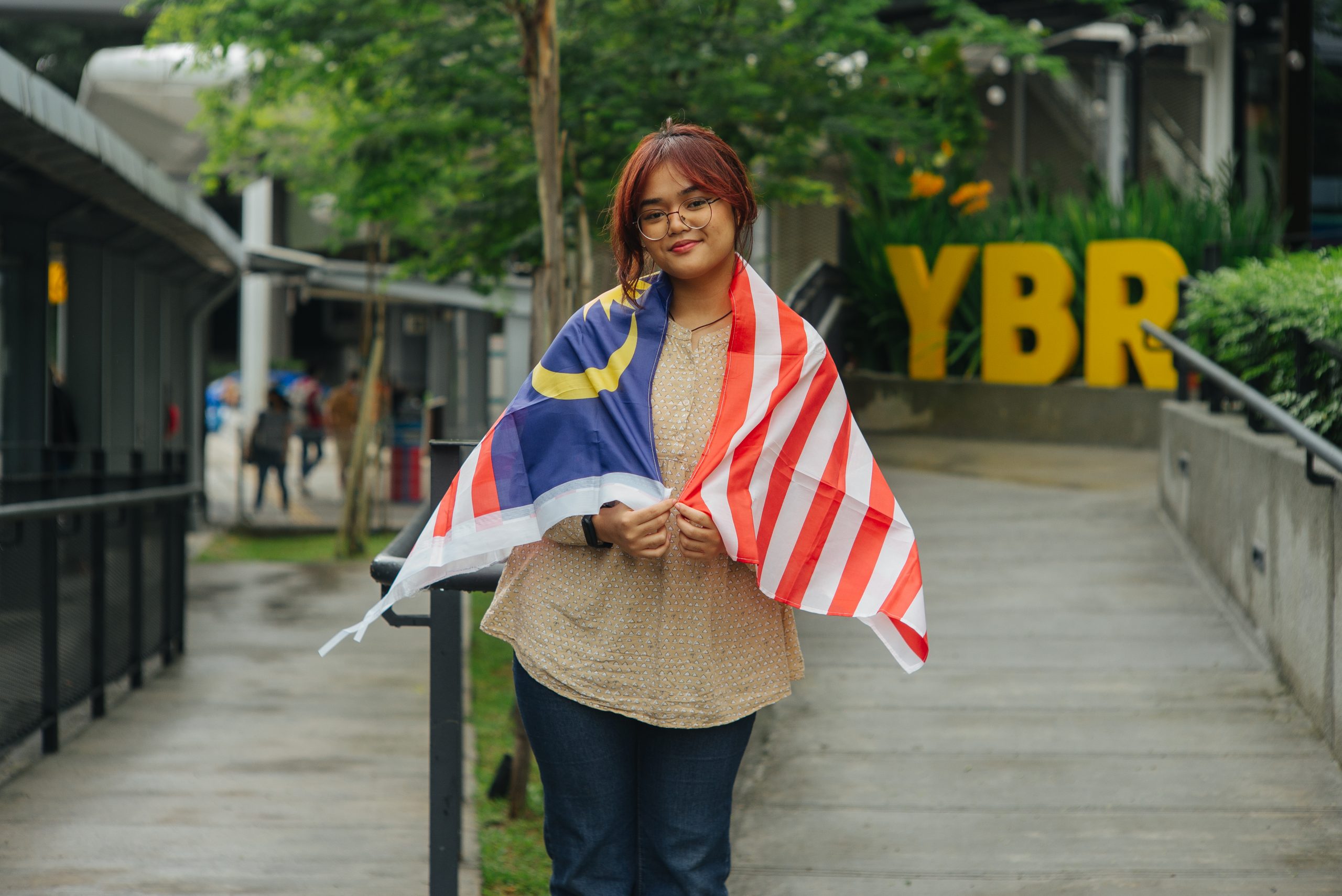All images by Razlan Yusof for RICE Media unless stated otherwise.
“Confusing, chaotic, unstable.” The three 18-year-old Malaysians I spoke to certainly have compelling thoughts about the current political state of their nation. Coincidentally they will cast their first vote in a day’s time.
“Sugar-coating of issues, no transparency, glossing over our problems.”
ADVERTISEMENT
It only takes a few minutes of conversation to get the impression that these spirited Gen Zs do not appreciate having the wool pulled over their eyes.
18-year-olds Jay Daniel Fernandez, Ain Husniza Saiful Nizam, and Charis Kee will make history this 19 November when they become part of the youngest age group ever to cast their ballots at a Malaysian general election.
As of 15 December 2021, the minimum voting age in Malaysia has been lowered from 21 to 18. The Undi 18 movement, which advocated for a reduction of the minimum voting age, started in 2016 under the umbrella of the Malaysian Students’ Global Alliance.
Former Youth and Sports Minister Syed Saddiq (and fellow young person) came on board to lend legitimacy to the movement. Clearly, the fight bore fruit.
A drawn-out process then saw the bill passed unanimously in the Dewan Rakyat (House of Representatives) and Dewan Negara (Senate), followed by the royal assent by the Yang Di-Pertuan Agong.
The law was officially gazetted on 10 September 2019.
However, Undi 18 suffered a setback in March 2021 when the Perikatan Nasional government pushed back its implementation. The postponement caused ire, leading to a peaceful protest of over 100 individuals.
Thankfully, all that drama has since passed. In Malaysia’s 15th General Election (GE15), approximately 1.4 million eligible 18-year-old Malaysians will grace the polling stations for the very first time in history.
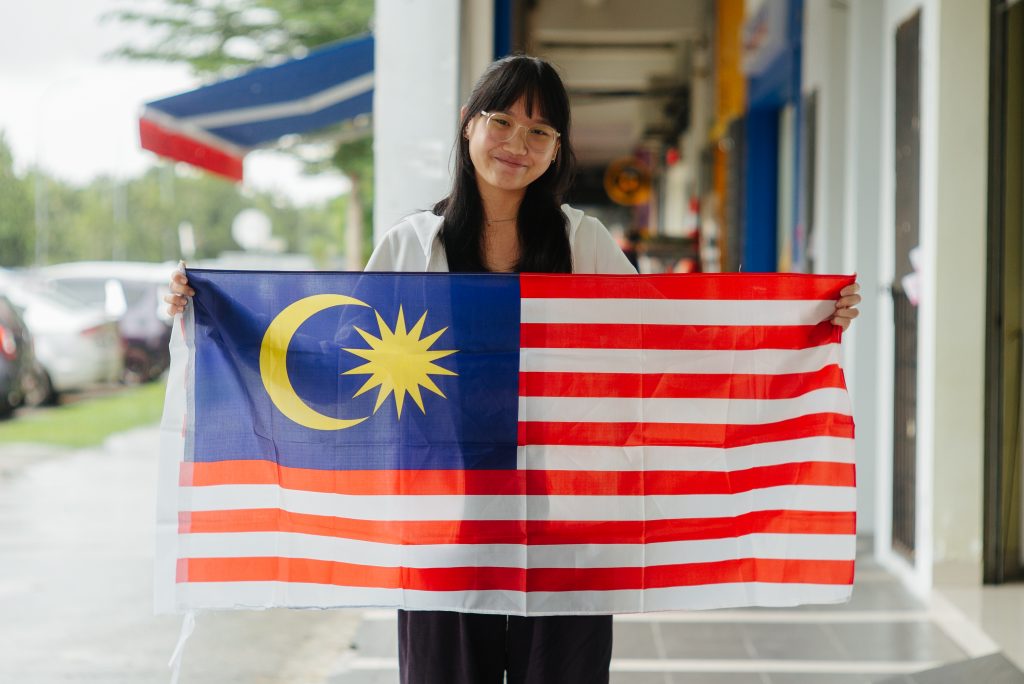
The Social Media Vote
Gen Zs are dissimilar from their millennial predecessors, or Gen Y, in so many glaring ways.
While Gen Ys are hopeful dreamers, Gen Zs grew up in a time of economic instability, which explains their realist inclinations. Gen Zs were birthed directly into a world of fast internet—social media is the air they breathe.
This makes all the difference because it effectively removes the hassle of purposely seeking out information. Scroll through your social media feed now, and you are bound to land on something political. Imagine getting exposed to this at an impressionable young age.
Ain shares that she was fed a lot of race rhetorics as a kid—failure to vote for a particular party meant bringing divine wrath upon herself.
“How did you move away from that viewpoint?” I ask.
ADVERTISEMENT
“Social media, of course,” she exclaims. “Consuming different content on social media meant exposure to different schools of thought. I learned to weigh the different perspectives and slowly changed my mind.”
All this plays effectively into political campaigning. TikTok was once just somewhere for young people to dance and lip-sync to songs. Now, politicians recognise it as a reliable, powerful tool to reach the younger audience.
Ain certainly knows a thing or two about the wonders of social media. When she was 17 years old, her physical education teacher made a rape joke while discussing sexual harassment in class.
Malaysia has laws that protect minors, which led the teacher to remark: “If you want to rape someone, make sure they are above 18.”
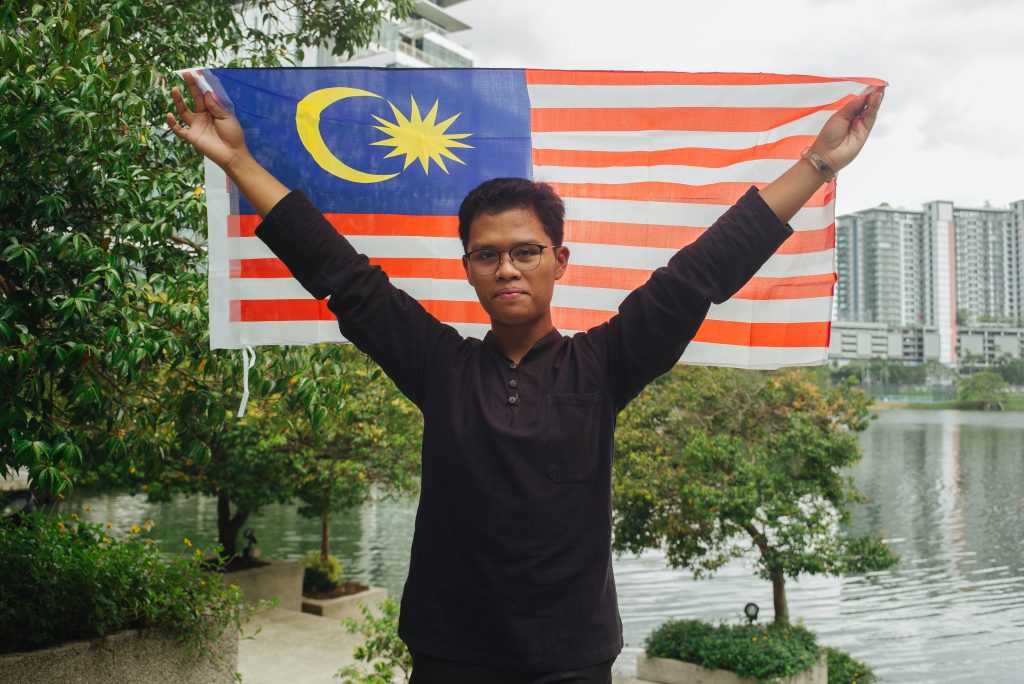
Undi18 from across the Causeway
In Singapore, efforts to lower the voting age to 18 have been lukewarm. In the country’s last General Election in 2020, the discussion stopped at a proposal floated by Dr Tan Cheng Bock’s Progress Singapore Party during the party’s media launch session.
“At 18, they are old enough to drive. The girls enter university, and the boys enter National Service. Since they have a duty to defend our country, these 18-year-olds should also have the right to elect their leaders,” Mr Tan mentioned.
Looking at post-election statistics from Singapore on younger voters, Mr Tan’s proposal may serve all political parties in Singapore well. Although first-time voters between the age of 21 to 24 represented less than 10 percent of the electorate, every vote counts in an election where winning a majority is often a razor-thin margin away.
Singapore’s opposition parties already look set to conquer the social media space where Gen Z voters linger. A University of Melbourne election post-mortem piece says it best: “The Workers’ Party (WP), on the other hand, won praise for its aspirational messages and slick use of social media in a campaign largely conducted online due to the pandemic.”
The same piece went on to add that: “WP candidate Jamus Lim acquired a band of ‘stan accounts’ run by obsessive fans and appeared in ‘fan cam’ video mashups popular in K-pop, while 80-year-old PSP leader Tan Cheng Bock endeared himself to younger fans with Instagram stories and memes.”
A Blackbox survey also found that Gen Zs relied heavily on social media for election news and are more inclined to believe that having more choices for voters is good for Singapore.
All this could potentially be bad news for Singapore’s ruling party, the PAP, whose wider presence on social media during the General Election in 2020 often came at the expense of its political messaging.
One need look no further than Deputy Prime Minister Heng Swee Keat’s gaffe during his nomination day speech outlining the ‘East Coast Plan’ that has been roundly satirised on TikTok.
Mr Heng, the frontrunner for the Prime Minister role, has since withdrawn himself from nomination in April 2021.
A Fresher Perspective
Love it or hate it, Gen Zs in Malaysia offer more than just noise—they also bring a fresh perspective to the table. As Charis puts it, “Not necessarily better or worse, just different.”
When I ask about issues that older generations might not be able to relate to, Charis and Jay immediately point to gender and sexuality.
“The older generation is not as receptive to the lived experiences of those who do not fall neatly into the traditional gender and sexuality boxes,” Jay expressed.
“But it is different for us. We have endless conversations on the topic. This on its own shows the collective shift in mindset.”
Charis has the same observation. “Even religious Gen Zs do not have the same bigoted attitudes regarding gender and sexuality as the previous generations did. I would say that we are more desensitised today than we were as recent as three years ago.”
My hunch is that these 18-year-olds want dialogue—especially since they come from an environment where contentions and ideas are interrogated in the digital space. It’s no wonder they detest it when the government glosses over issues.
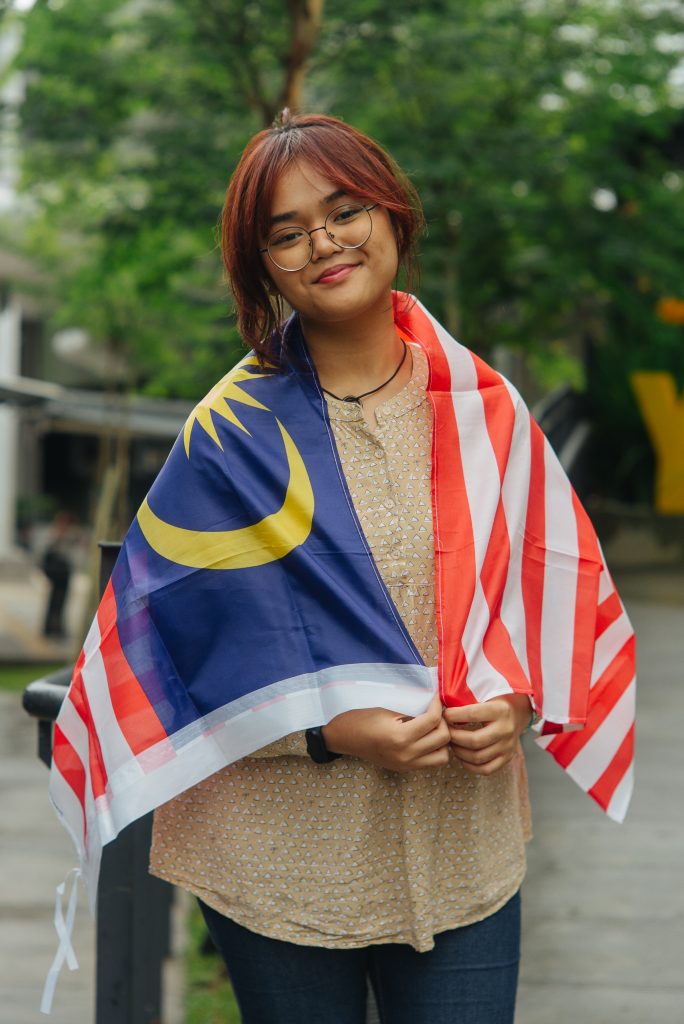
“One issue my generation will have to grapple with is the brain drain. The talents are leaving the country. What will we be left with to build the country?” Ain utters.
The solution? “Pay people more!”
“Think about it. Doctors, who are crucial to our society, are having trouble getting permanent positions. Doctors!” Ain continues, referring to the younger generation of government doctors employed on a contract basis. Their predicament deprives them of all kinds of rights and opportunities, which explains why the Hartal Doktor Kontrak movement has been a hot topic.
The Hartal Doktor Kontrak is a nationwide workers’ strike organized by medical officers in Malaysia on 26 July 2021 in protest against the government’s contract system in appointing medical officers.
Our conversation then turns to the management of public funds and, consequently, corruption. Once again, the country’s lack of transparency rears its ugly head.
“The rising prices of produce is worrying too,” Ain adds. The price of produce affects everybody, but it will affect Gen Z for longer if the problem isn’t handled right now.
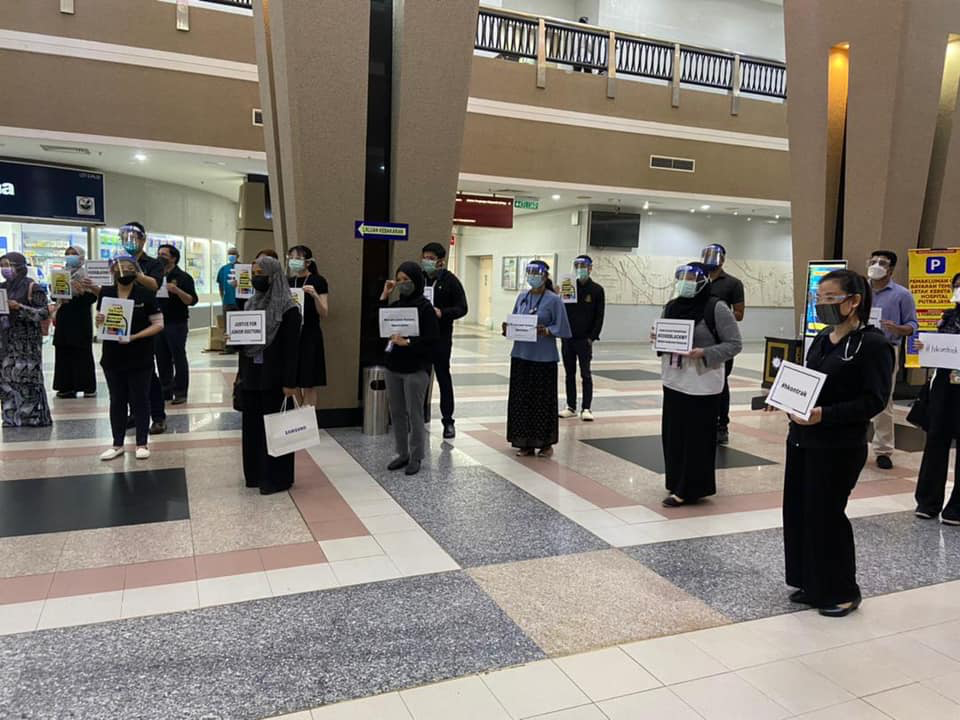
The Paradox of Malaysian’s Parliamentary System
These are pressing issues, but how this translates to the ballot box remains to be seen. Clearly, we want to vote in a federal government that cares for the welfare of the people. Except it’s not so straightforward.
Malaysia follows a parliamentary system. A vote for a capable parliamentary candidate might mean a vote for an ineffective Prime Minister. At the same time, voting based on the Prime Minister candidate could also mean voting for an incompetent representative.
For the 18-year-olds I spoke to, weighing the calibre of the candidate against the party they represent is a precarious balancing act.
“I don’t necessarily vote for the party, but for the person. It does concern me that I might be indirectly voting for an incapable Prime Minister. It is a moral dilemma. Do I prioritise my area or the whole country’s well-being?” says Charis.
Ain shares the same point of view. “Democracy in this country is flawed. I might want to vote for a candidate I deem to be an effective advocate, but voting for this candidate might mean voting for a Prime Minister whom I disagree with.”
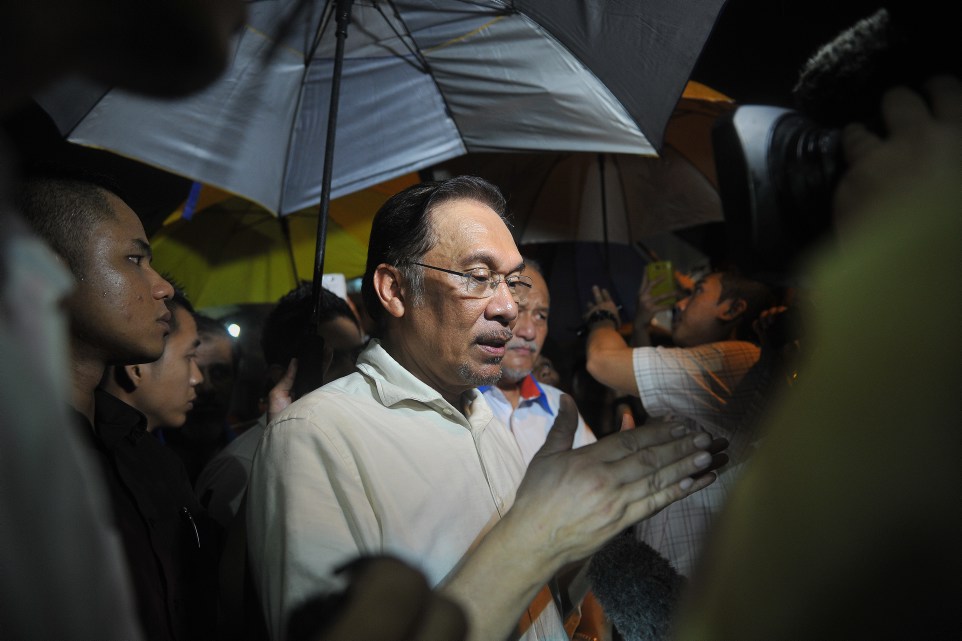
Parents As the First Teachers
These young voters have certainly given the situation some serious consideration. So much for the sentiment that youngsters do not have independent thought and will blindly mimic their parents at the polls.
I try to pick Ain’s brain on this. In response, she enthuses, “Old people also!”
Indeed, anybody of any age is inclined to vote like their parents and community. It’s not a problem unique to young people.
“Anyway, it is not necessarily a bad thing if they vote like their parents,” Ain continues. “At least they are voting and engaging, which is better than zero engagement.”
Moreover, we should not overlook the political education one receives at home. Not only do Jay’s parents regularly discuss politics with him, but they always include the rationale behind their convictions.
“For example, they explained why they prefer a party that thrives on diversity over one that is supposed to represent a specific race.”
Jay’s family does not blindly vote for the hot stuff of the day; they unravel the policies. He has fond memories of watching the vote tallying on TV with his family as a child. These experiences have shaped him into the politically aware 18-year-old he is today.
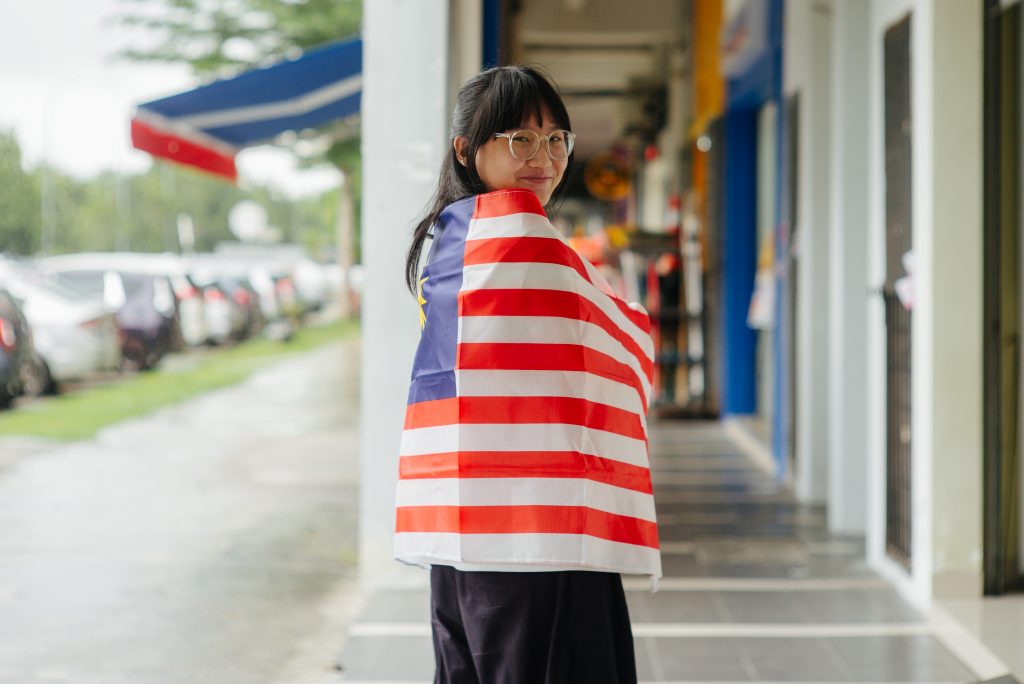
Political Education in Schools
Sadly, not everybody shares Jay’s privilege.
For many Malaysians, the reality is that they are expected to sink or swim at the polling stations. The education system does little to prepare them. Some part of this is because the teachers in school are government servants. I distinctly remember my secondary school teacher telling my class that she could not talk to us about politics.
The school syllabus does our political education no favours either. As Jay puts it, we are given the power to vote but not taught how to wield that power.
“But it doesn’t mean that we should not vote. We have a right to be politically aware, we have a right to vote, and I think the education system should support us in that right,” says Ain.
“NGOs have workshops on how to vote. Bring that to schools. Teach students the A to Z of voting—how to read the manifesto, look back at what the candidates have done, how to look for information, and so forth.”
Jay, Ain, and Charis all came from the same public school system and experienced the same syllabus, but Charis is fortunate that her school activities prepared her as a voter.
Her secondary school holds elections to select the prefectorial board, where the whole school votes. It is competitive—a full week of campaigning, support clubs, posters, manifestos, speeches, banners, and badges.
“The school elections taught me the importance of voting. I learned to weigh the candidates’ resumes to make an informed decision. For instance, if the position is Library President, it doesn’t matter that the candidate is a basketball champion. I want to know that this person will do what they promise,” she shares.
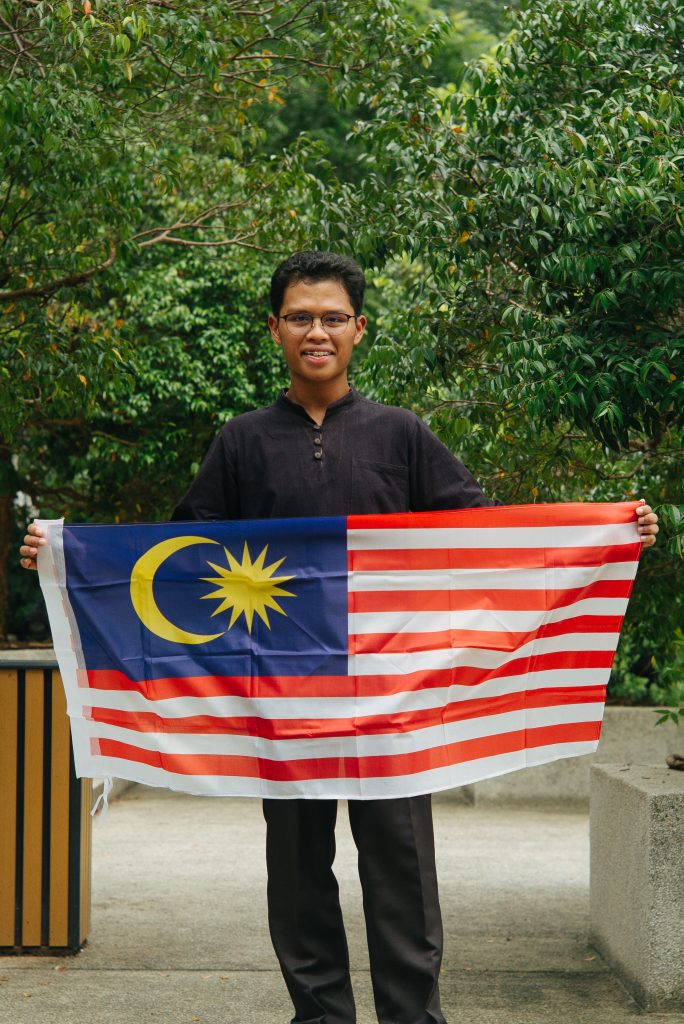
On Maturity
But school is school, and the real world is.. real. How these 18-year-olds fare with real-world ballots remains to be seen. What I know for sure, though, is that a sizeable portion of Malaysians regard the younger generation with general disdain.
That scorn plays out even in parliament. There, Syed Saddiq, despite being 26 years old when he gained a seat in parliament as MP of Muar in 2018, was chided as being a “budak” (child) more than once. His political party MUDA also has a reputation for being a ‘Gen Z party’, although the members are mostly Gen Ys.
“Age does not define maturity,” Jay retorts.
Similarly, Charis feels that making assumptions about a person based on age invalidates their perspectives, thoughts, and opinions. We each have different life experiences that make us the people we are today.
Maturity is best exemplified in Ain’s initiative, the Make School A Safer Place movement, in response to the support and backlash she received after posting a viral TikTok video about her teacher who made a rape joke.
“Make School A Safer Place is an example of the power of the Internet,” Ain explains. “Someone like me wouldn’t have made much impact back in the day, but now, my voice can be circulated everywhere.”
Following the movement, Ain has since received messages from adults about similar incidents that they experienced decades ago in school. “Because of social media, we, the Gen Z, have a platform the older generations did not enjoy.”
Ain added that the Make School A Safer Place movement is an example of why youth should be able to vote.
“We have a voice, and our voice matters. If it matters in school, then it should matter in parliament too. Make School A Safer Place shows the leadership of our youth and that we want change. We deserve the right outlet for that change through voting.”
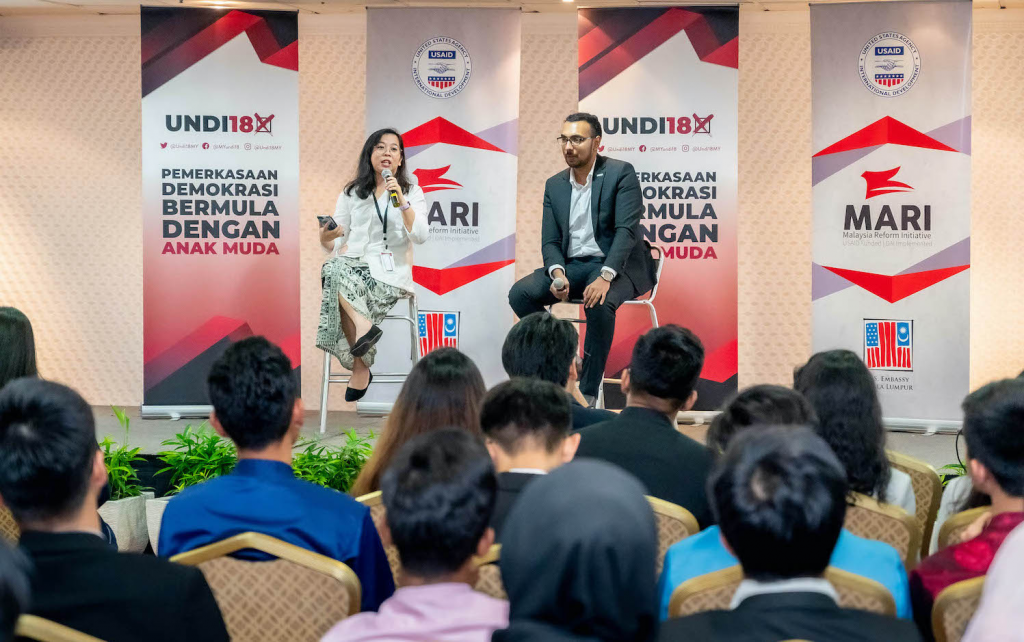
Time To Try Different
At the risk of sounding like a broken record, the younger generation is different; not better or worse, just different. Broadly speaking, nothing has changed in the government after so many years. It may be time to try different.
“As with every generation, there are the neutrals and those who care a little more. But my hope for my generation is that everybody forms an opinion. No matter who you lean towards, it is important to engage with the policies,” Ain adds.
Charis explains it perfectly, “When you vote for someone who is supposed to represent you, their decisions are going to affect you, so you better make sure that you vote for the right person.”
Similarly, Charis believes that the culture of her generation is a product of social media. Gen Zs are a vocal generation, with many forming opinions contrary to their upbringing.
For one, the nature of social media means more advocacy platforms. When like-minded people find each other, they learn that they are not alone, which is empowering.
On the other hand, the anonymity of the internet means that people can be open about topics that were once considered taboo. How this intersects with politics remains to be seen.
So here’s the million-dollar question: How will the social-media-adept Gen Z affect the outcome of GE15?
